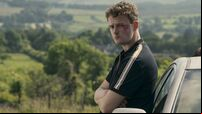Kathriona Devereux: Forget the Swiss Army knife - how will you feed the baby in a disaster?

Someone high up in the EU must be an Echo reader (!) because last week came news that all EU citizens should aim to have a survival kit that would sustain them for 72 hours in a crisis or natural disaster.
‘Ready for anything’ is our new European motto.
Cereal bars, a Swiss army knife, photocopies of vital documents in a waterproof bag, cash (oh yeah, the ATMs don’t work in a power outage), and enough water to last three days are some of the items recommended to weather a disaster.
This Europe-wide push for preparedness was well-timed - it came just a day before the release of a landmark report about how Ireland needs to start thinking seriously about how babies are fed during an emergency.
If the power went out tonight and stayed out for a week - how would you feed your baby? Or if your house flooded and you ended up in a school hall evacuation centre - or a refugee centre with limited access to food and water - then what?
Ireland doesn’t have clear answers. Yet.
An All-Island report by researchers in TU Dublin and Queen’s University Belfast underlines the uncomfortable truth that there’s no plan for feeding infants and young children during emergencies.
We are not ‘ready for anything’ when it comes to protecting our most vulnerable. And as climate change fuels more extreme weather, and supply chains grow shakier, that blind spot becomes more dangerous by the day.
Adults can make do with what’s in the cupboard. Babies, especially those under six months, can’t. They rely entirely on breast milk or infant formula, and even short disruptions can cause serious harm.
In an emergency, babies face the greatest risks of diarrhoea, infection, and malnutrition.
Both breastfed and formula-fed infants are at risk: formula requires sterile water, power, and supply chain stability; breastfeeding can be disrupted by maternal stress or lack of .
Formula-fed babies are especially vulnerable. Formula isn’t just dried, powdered milk, it’s a complex product that requires added fats, vitamins, and minerals (often imported from outside Ireland) plus sterile water and safe prep to make it a nutritionally safe food.
Storm Éowyn plunged parents into that very situation. In the days after Éowyn knocked out electricity to more than a million customers on the island, the radio waves were full of testimonies from mothers struggling to feed their babies in cold houses with no power and no water.
Getting to the shops to buy pre-made bottles of formula was difficult due to imable roads. And they were the lucky ones.
Homeless families, asylum- seekers, refugees, and low-income households always face disproportionate risks in emergencies and need to be considered in emergency preparedness plans.
In past crises, Storm Emma and covid-19 particularly, we’ve seen supermarket shelves stripped bare. Not because of real shortages, but because of panic-buying and fear.
Even though Ireland is a large formula-producing country for global markets, we remain dependent on international supply chains to provide ingredients to make it.
A potential global disruption, like the 2022 U.S. formula shortage that followed contamination at a major plant, could leave Irish parents worryingly exposed.
Breastfeeding, on the other hand, is a self-contained, climate-resilient food. It doesn’t need electricity or clean water.
But even breastfeeding isn’t immune to disruption. During emergencies, stress, separation from newborns, or a lack of can interfere with breastfeeding.
One of the best things we can do to prepare for climate and humanitarian emergencies is breastfeeding now. (Ireland’s breastfeeding rates are low. Just 63% of babies receive any breast milk at birth. Fewer than 5% are exclusively breastfeeding at six months)
Long-term investment in breastfeeding and higher breastfeeding rates would mean fewer infants reliant on formula, which would build self-sufficiency and resiliency in the face of natural disasters, economic crises, or public health emergencies. And would lessen the burden on emergency resources in the future.
When breastfeeding isn’t possible, donor breast milk is the recommended back-up - especially for premature or sick infants. But Ireland has just one milk bank, in Co. Fermanagh. It supplies all 27 neonatal units across the island.
If that single facility were to flood or lose power, the consequences could be devastating.
The report recommends the appointment of a dedicated Infant and Young Child Feeding in Emergencies (IYCF-E) co-ordinator to bring all the key players - health, emergency services, social protection, and community groups - around the table to hatch the new plan.
Better breastfeeding , an expanded donor milk service, and stricter regulation of infant formula marketing and distribution are also recommended to strengthen national public health resilience.
This can’t be another report that makes a splash and then gets shelved and ignored. It won’t be policymakers that pay the price for inaction - it’ll be babies.







 App?
App?




